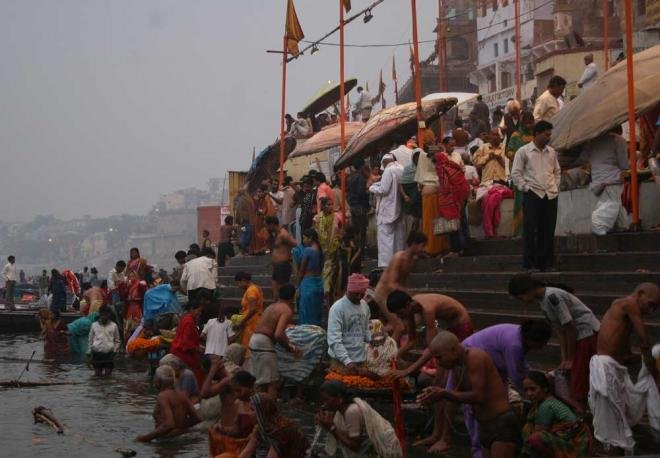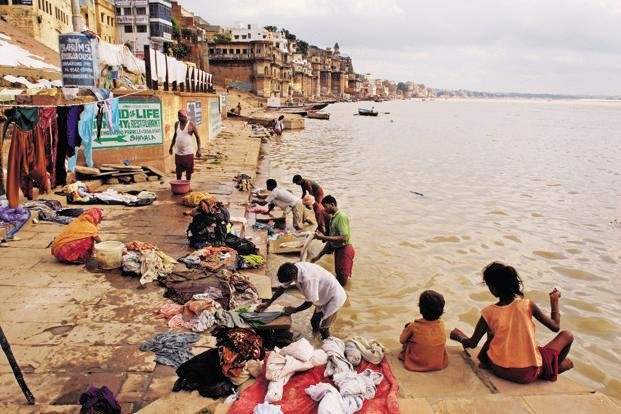The National Green Tribunal (NGT) on Thursday passed a slew of directions to rejuvenate the Ganga river, declaring a “No-Development Zone” 100 metres from the edge of the river between Haridwar and Unnao and prohibiting dumping of waste within 500 metres from the river.
The apex environment regulator directed all authorities concerned to complete various projects including setting up of a sewage treatment plant and cleaning drains within two years. It also said the Uttar Pradesh government should be “duty-bound” to shift tanneries within six weeks, from Jajmau in Kanpur to leather parks in Unnao or any other place it considers appropriate.
The NGT also directed the Uttar Pradesh and Uttarakhand governments to formulate guidelines for religious activities on the ghats of Ganga or its tributaries. The tribunal also appointed a supervisory committee, headed by the secretary of the water resources ministry and comprising IIT professors and officials from UP government to oversee implementation of the directions passed in its 543- page verdict. It also asked the committee to submit reports at regular intervals.

The NGT said the concept of zero liquid discharge and online monitoring of affluents should not be applied to industrial units. It said that all industrial units falling in the catchment area of the Ganga river should be stopped from indiscriminate extraction of groundwater.
The tribunal had heard the arguments of the Centre, the Uttar Pradesh government, pollution control boards and various other stakeholders for almost 18 months before reserving the judgement on 31 May.

The green panel has divided the work of cleaning the river in different segments—Gomukh to Haridwar (Phase-I), Haridwar to Unnao (termed as segment B of Phase-I), Unnao to border of Uttar Pradesh, border of Uttar Pradesh to border of Jharkhand and border of Jharkhand to Bay of Bengal. It has already delivered the verdict in December 2015 with regard to first phase between Gomukh to Haridwar. The verdict came on a 1985 PIL of noted environment activist M.C. Mehta which was transferred to the NGT from the Supreme Court in 2014.

















